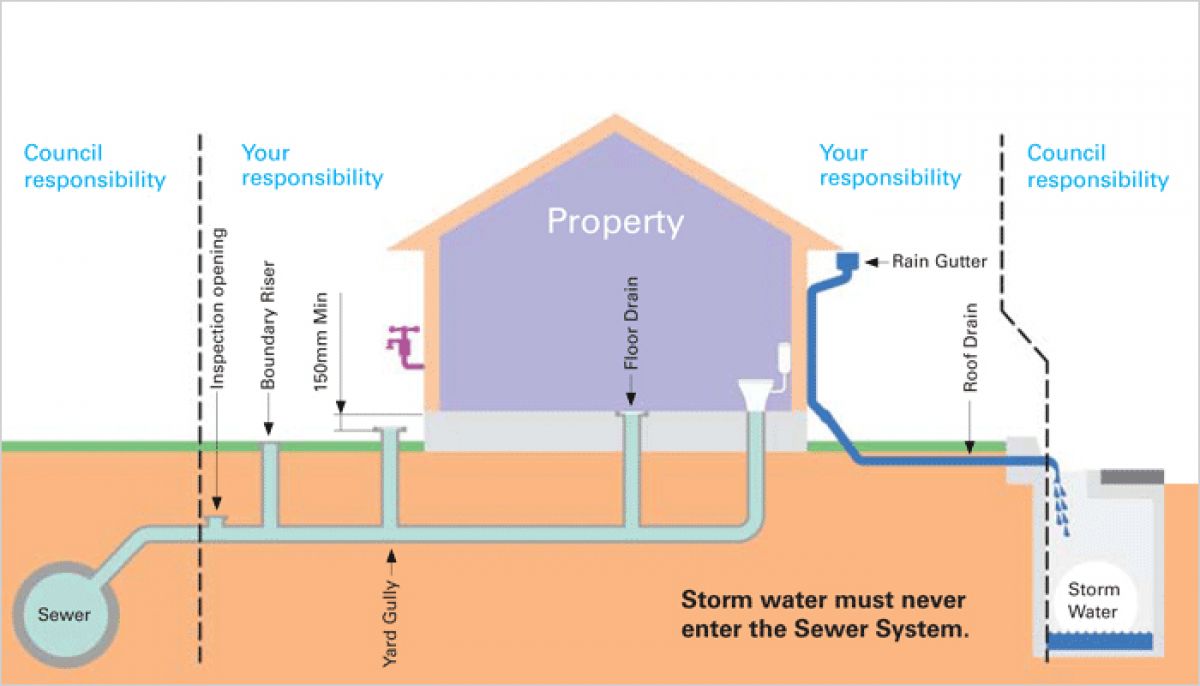Plumbing infrastructure is predominantly out of sight, therefore it's easy for it to also be out of mind.
But, if there was an issue with your property's drainage, would you know who to call? Or, as a property owner, do you know what sewer infrastructure is your responsibility, and what is Council's?
The following helps answer these questions and makes sure you get the right assistance, saving time and money.
I think there's a problem!
The most common sewer problem is blockages, or chokes, within the pipes. Fixing chokes at the first sign of a problem is much easier, than if left unattended – a few hours could make the repair works and mess, bigger and costlier.
To identify a choke:
- Listen - Can you hear gurgling noises coming from the sink?
- Look - are basins draining slowly?
- Smell - are there unpleasant odours or sewage spilling from sinks, toilets or gully traps outside the house?
But, who owns what?
Property owners are responsible for sewer pipes within their property and up to the connection to Council's sewer.
Wagga Council looks after sewerage pipes up to the first pipe joint within a property, as well as maintaining all treatment plants, pipes and plumbing stations to supply water and take sewage from homes. The following diagram indicates who looks after what.

Did you know? Wagga Council's sewerage network services over 18,000 residential and 2,000 non-residential properties. The sewerage network consists of 677km of gravity, rising and pressure mains and 44 pump stations.
As a joint responsibility, and with residents on the frontline, Council relies on residents to contact them as soon as possible if there are problems with Council's sewer service.
Council's all-hours emergency sewer mobile service is available by phoning 1300 292 442
So, who should I call?
If you suspect an issue, first contact Council on 1300 292 442. Council will assess whether the problem needs to be taken care of by you or by Council. If the problem is your responsibility, you will be advised to contact your plumber. If the problem is Council's responsibility, then Council will undertake the appropriate works.
Save yourself the headache
Being mindful of what goes down the drain can save you costly repair works.
To help prevent a choke:
- Don't put food scraps, oil or cooking fats down the sink
- Only flush toilet paper down the toilet
- Don't plant trees over sewer pipes
- Don't place any load on top of the boundary riser or gully trap
Did you know? Flushable baby wipes should not be flushed!!! While they may disappear, the do not break down, and can clog the pipes and create problems for you and your neighbours
